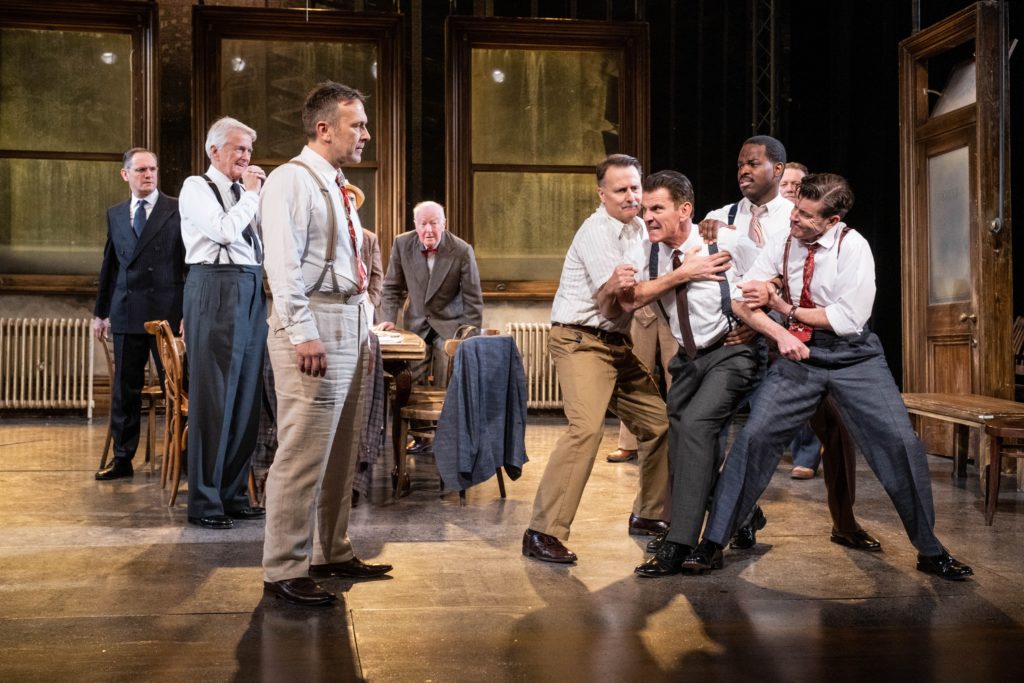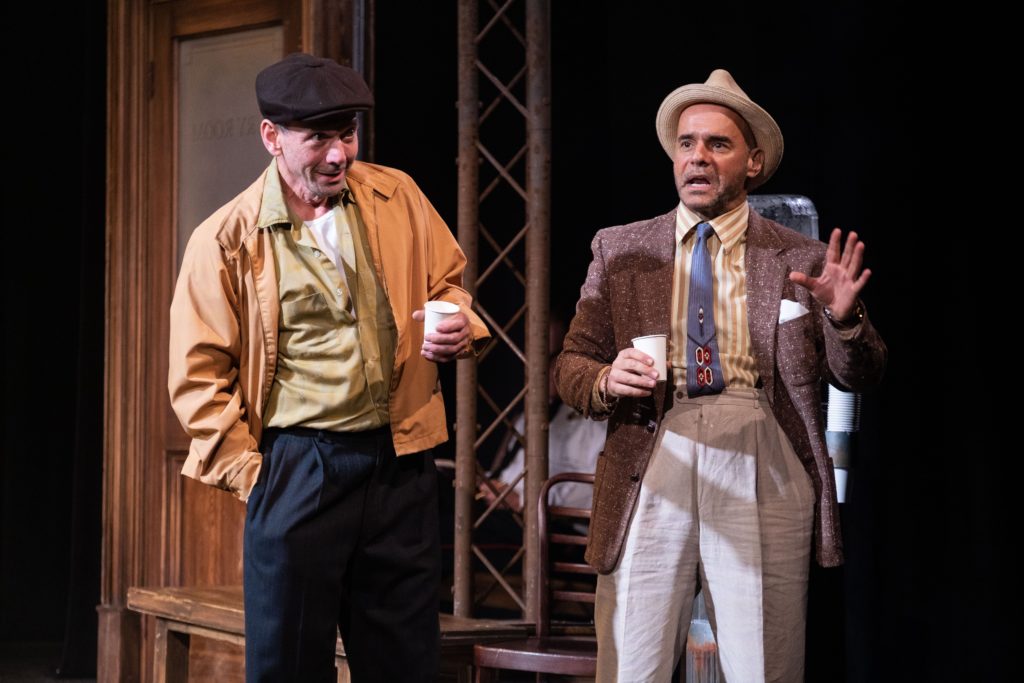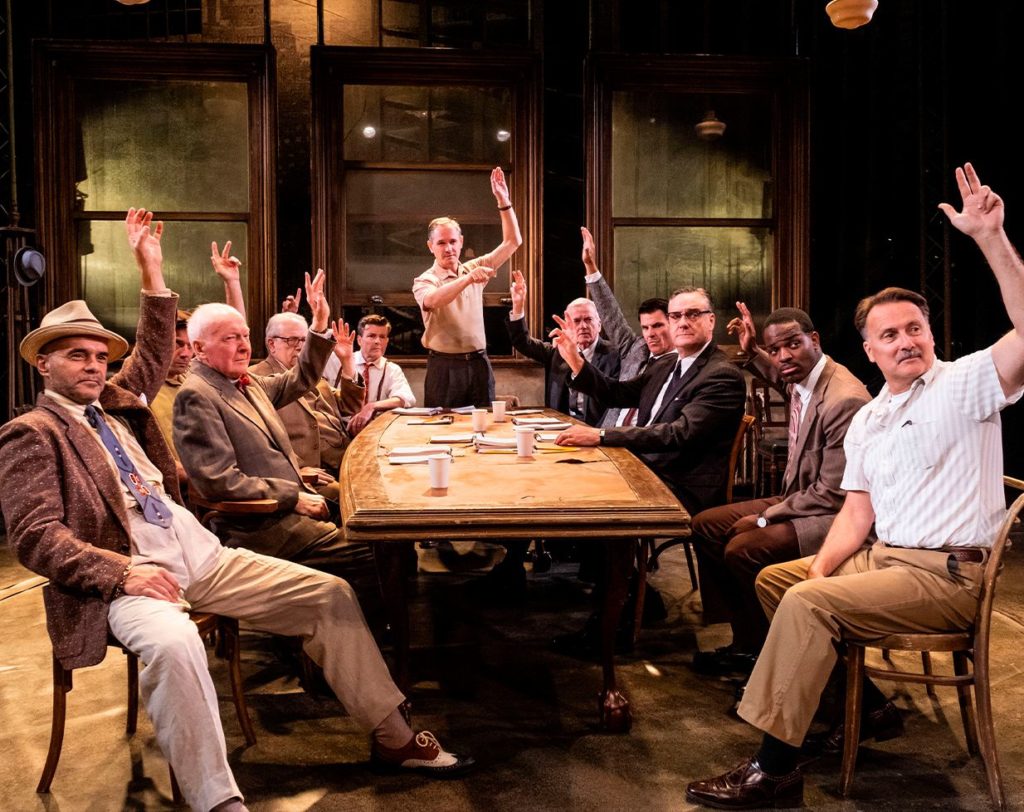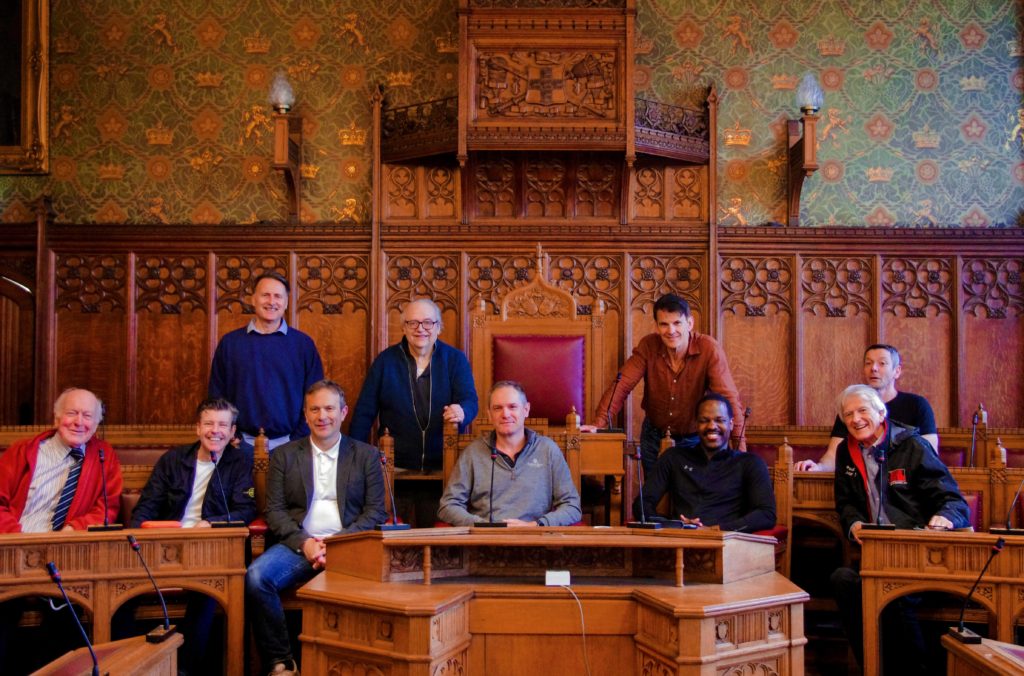
“UNBEARABLY hot!” was the verdict of one audience member, who bailed out of Monday’s press night at the interval. “Wedding ring and watch wouldn’t fit because of heat swelling fingers and wrist,” he reasoned.
Come Tuesday night, York’s heatwave had waved goodbye, but you could still feel the heat rising, temperature and tempers alike, on the Grand Opera House stage.
A storm is brewing both metaphorically and meteorologically in Reginald Rose’s “knife-edge thriller” on its return to the Grand Opera House for the first time since April 2015, in the finale to the 70th anniversary tour.
Mounted once more by Bill Kenwright Ltd and directed again by Christopher Haydon, with the same set design by Michael Pavelka, the latest production has the continuity and hallmark of quality of The Woman In Black under Robin Herford’s stewardship.
At the tiller since the 2013 premiere at Birmingham Repertory Theatre, Haydon has assembled another supremely combative cast of 13, unlucky for none, whether fellow cast members or enthralled audience.
A train thunders by on the New York subway, a jolt to sharpen our senses for the war of words ahead before the sonorous voice of the unseen judge warns the jury, “one man is dead; the life of another is at stake”.
One by one, the 12 jurors file into the dingy jury deliberating room, opening the dusty windows to the street to counter the sweltering heat, a discomfort only heightened by the overhead fan failing to work.

To one side is an oft-visited rest room; to the other, an even more oft-visited water dispenser. Outside the locked door, a stone-faced guard (Jeffrey Harmer) is on duty.
Under the charge of the stoical foreman (Owen Oldroyd), the jurors must decide the fate of a young delinquent, a boy of 16 accused of stabbing his father to death.
It looks an open-and-shut case, as the preliminary guilty vote of 11 to one would indicate, but a unanimous verdict is required to condemn the boy to the mandatory death penalty.
Standing alone, unsure of guilt beyond reasonable doubt, is Jason Merrells’s Juror 8, an architect by profession who sets about building the case the defence lawyer never satisfactorily presented.
Admirably equitable and eloquent, Juror 8 is the calm amid the electric storm soon to crackle. The twelve angry men of the title turns out to be a misnomer: Merrells’s conciliatory juror never raises his voice or bursts the banks of frustration as those around him do in Rose’s claustrophobic study of human nature.
Haydon’s cast combines ensemble enterprise with individual expression, steered by Merrells’s assiduity, fair and quick of mind, always humanitarian, never righteous.
Mark Heenehan’s meticulously methodical broker, Juror 4 – watch how he washes his hands – comes slowly but authoritatively to the fore, by way of contrast with Tristan Gemmill’s vituperative, volcanic Juror 3 and Gray O’Brien’s boorish, bigoted Juror 10.

Who will reach boiling point first as the art of persuasion locks horns with a surfeit of jackets-off testosterone? Not only a teenager’s guilt or innocence is under examination, so too are 12 men’s characters, their predilections and prejudices, hot-housed and released under pressure that builds like the beads of sweat to be wiped away with handkerchiefs.
Amid the tightening tensions and mid-20th century American angst, Haydon’s company also mines all the observational humour in Rose’s astute script, typified by the gum-chewing, hat-tilting swagger of Michael Greco’s time-watching marmalade salesman, Juror 7.
Ben Nealon, Gary Webster, Paul Beech, Paul Lavers and especially Kenneth Jay and Samarge Hamilton all do sterling jury service too, and one more character stands out: the revolving stage that keeps the jurors’ table moving.
You could even call it scene stealing, such is the sleight of hand that means you never see it in circular motion, but move it most certainly does, facilitating seeing faces to the maximum within the proscenium arch framework.
As the table turns, so the tables turn in the jury room’s votes in a psychological drama where Pavelka’s set so cleverly mirrors the story, played out to a choreographer’s sense of movement by Haydon.
Pavelka, Haydon and his cast are guilty of being criminally good. To miss Twelve Angry Men would be a crime to make your reviewer one angry man.
Twelve Angry Men, Grand Opera House, York, until Saturday, 7.30pm and 2.30pm Saturday matinee. Box office: atgtickets.com/york.

